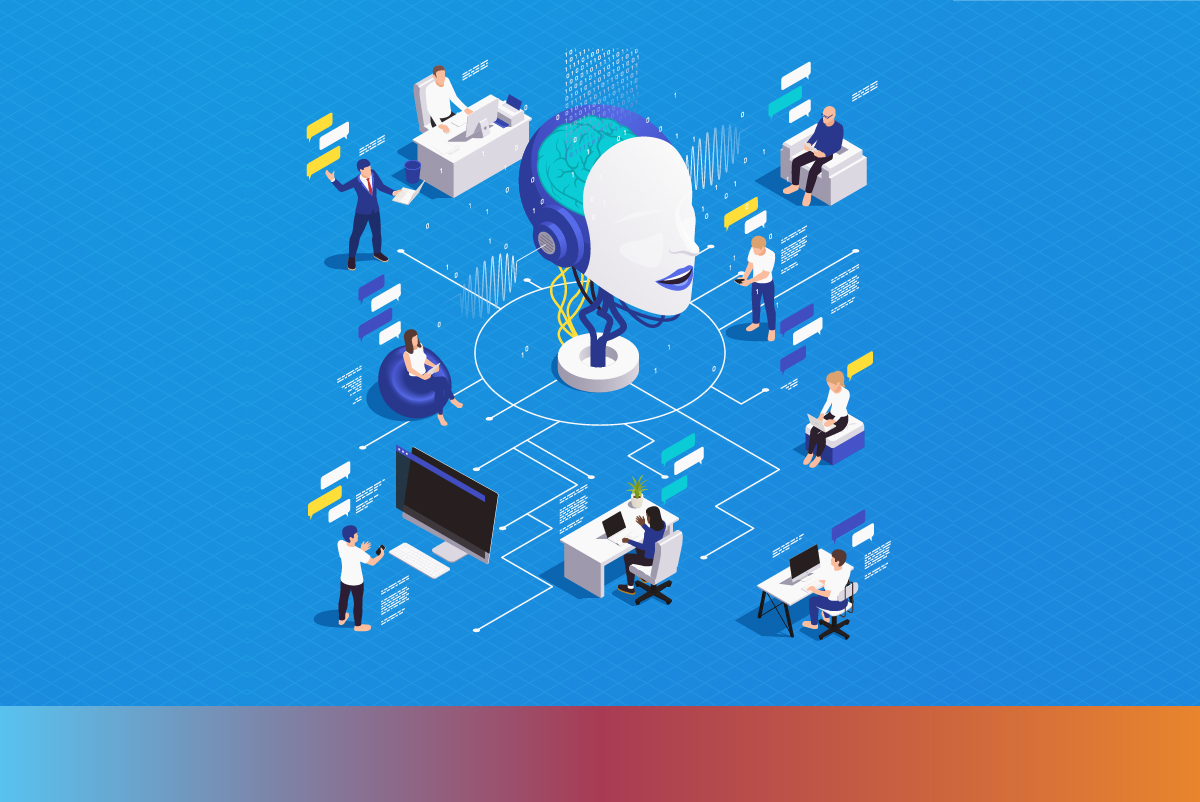We support leading insurance companies in their digital transformation, helping them adapt to an increasingly dynamic and demanding market.
Artificial intelligence transforms digital workspaces

In recent years, digital advances and the outbreak of the COVID 19 pandemic made way to new work modalities within organizations, such as remote work at first and then hybrid formats as face-to-face work was coming back, even if it was partial.
In this context, artificial intelligence and automation play a fundamental role in shaping the future of work. How can the digital experience of employees and the productivity of companies improve?
|
In 2022, 74% of employers offered hybrid work arrangements and this modality is preferred by 68% of employees. |
AI, an improved experience for everyone
The use of artificial intelligence makes it possible to improve the experience of employees, which in turn impacts that of customers. Automating repetitive tasks like collecting data, tracking, or handling routine requests speeds up times, simplifies tedious processes, and improves the digital experience. This improves workers' quality of life, while freeing up their time so they can focus on creative, strategic, and supervision tasks.
|
4 in 10 executives believe AI and robotics will automate repetitive, predictable tasks to support their employees and add more human value to their organization.
Fuente: BT and CISCO |
In this context, digital workspaces that allow desktops and applications to be accessed from any device without the need for an infrastructure are particularly relevant, thus reducing costs, and achieving greater flexibility and scalability. These spaces are favored by AI, enhancing the digital experience of employees.
![]()
 Fuente: eMarketer- Insider Intelligence
Fuente: eMarketer- Insider Intelligence
![]()
This graph shows the importance of providing employees with the right tools (Digital Workspaces) and with personalised support. In the latter, AI means a substantial shift towards retaining companies' talent.
Quizás te interese seguir leyendo
Workspace as a Service: ¿Qué es WaaS y cuáles son los beneficios? 
-
4 digital workplace AI solutions
Some of the main contributions of AI in the digital workspace are:- Automation of repetitive tasks: as we said before, thanks to this function employees will be able to reduce the load of manual and repetitive tasks obtaining improvements in physical and mental health and dedicate their time to more creative and productive activities. Automation eliminates unnecessary tasks, for example, with the use of bots to answer questions and tools to analyze data in real time.
- Machine translations: the globalisation and internationalisation of organisations and the recruitment of human resources in different parts of the world will require rapid translations to carry out daily tasks. Machine translation tools can provide information in different languages regardless of employees' location and language background.
- Digital workplace monitoring: Companies can determine the effectiveness of their communication in real time and make data-driven decisions. Cross-platform analytics portals can collect and analyze content, visitor behavior and engagement.
- Automation of repetitive tasks: as we said before, thanks to this function employees will be able to reduce the load of manual and repetitive tasks obtaining improvements in physical and mental health and dedicate their time to more creative and productive activities. Automation eliminates unnecessary tasks, for example, with the use of bots to answer questions and tools to analyze data in real time.
Sigue leyendo
Espacios de trabajo: acceso seguro en cualquier momento y lugar

Organizations will need to work on reorganizing workspaces to harness the potential of AI and realize co-benefits for employee wellbeing and business growth. At Serban, we empower the way people work by designing intelligent Digital Workspaces that organize, guide and automate tasks with a higher level of security and data protection.

Did you like this article? Leave us a comment


